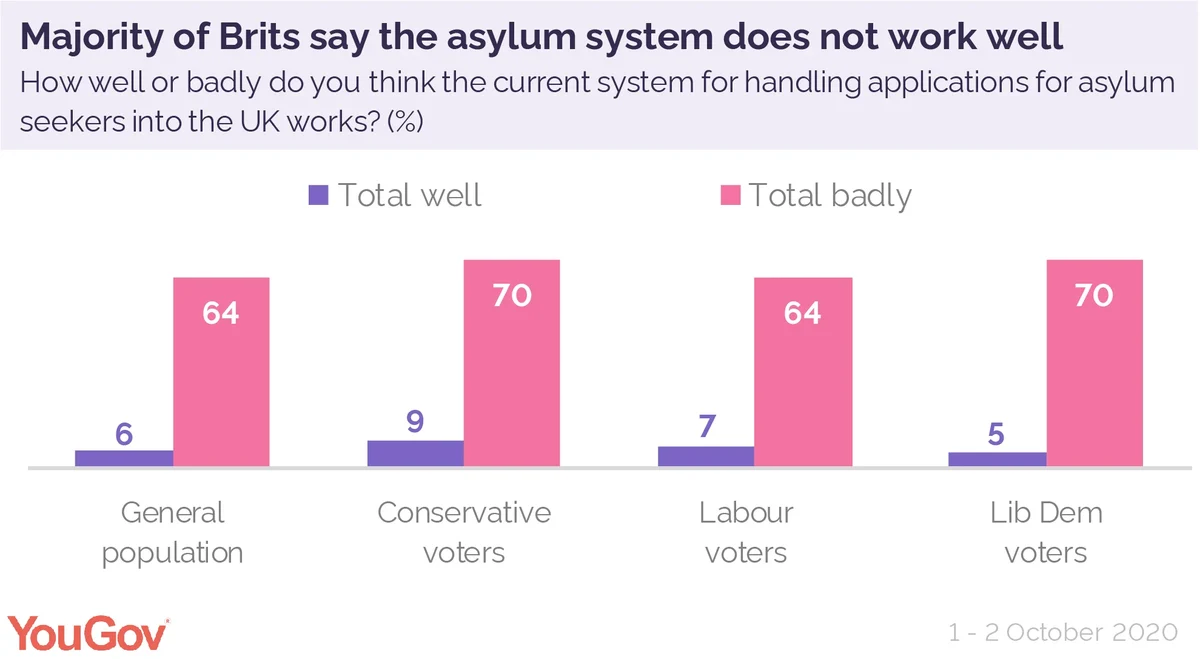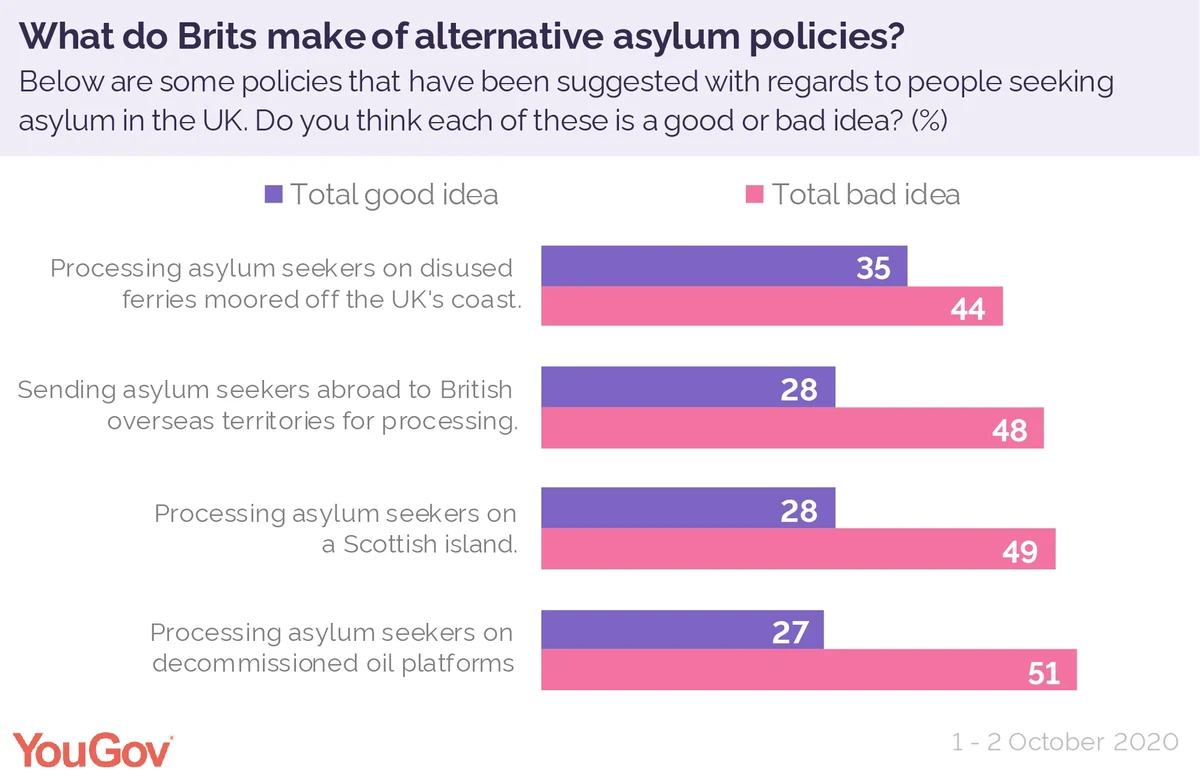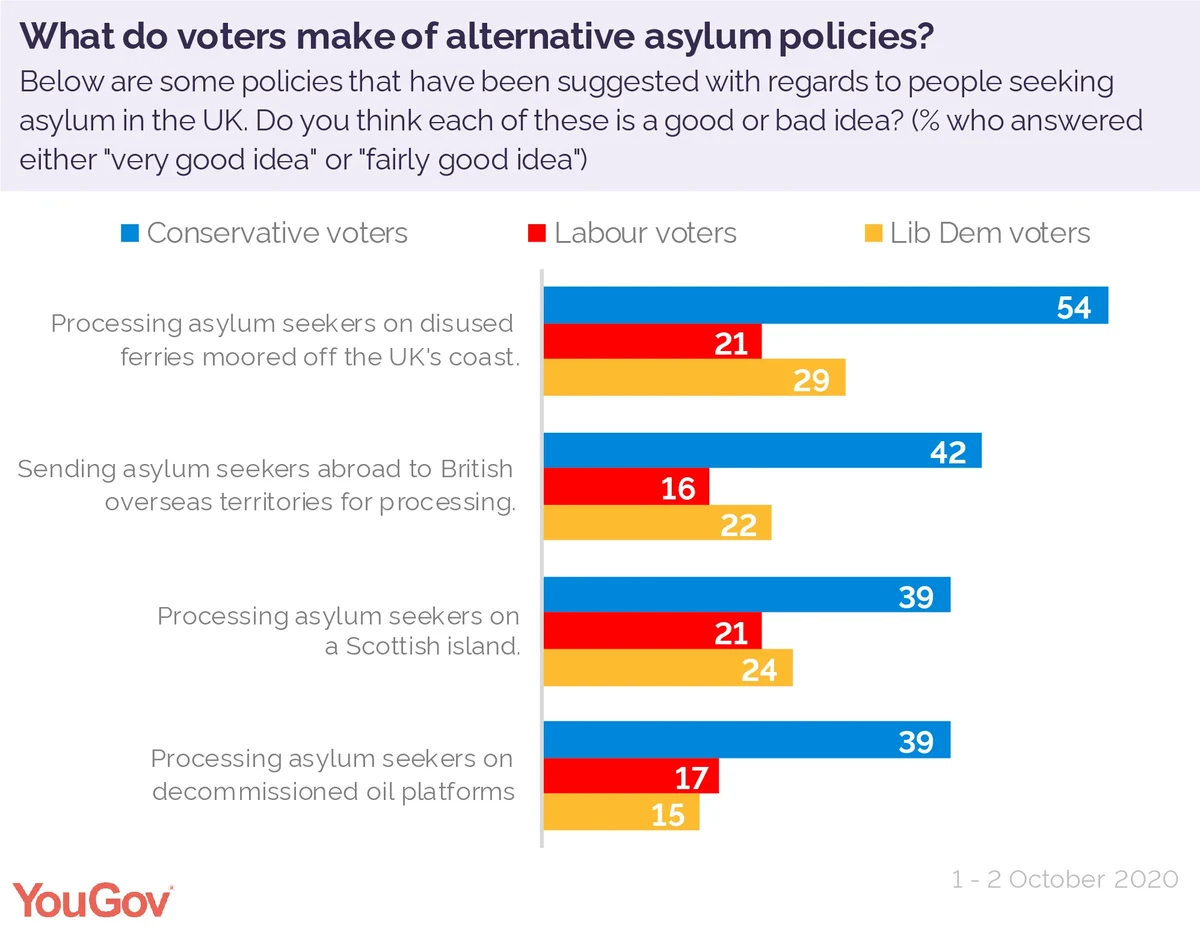Brits believe the current system works badly but they aren’t convinced by different options either
Home Secretary Priti Patel has made headlines in recent weeks with alternatives for how asylum seekers arriving in the UK might be handled, including suggestions of overseas processing centres and using ferries to house those making claims for asylum in the UK.
But what do Brits make of both the current system and the alternatives recently suggested?
Does the current system work?
Priti Patel has called the UK’s current system “neither firm nor fair” and the majority of Britons across all political parties agree that the system is working badly in its current state.
Among the general population, only 6% say the system is working well to some extent, with the majority (64%) saying the system currently in place is working badly. A significant portion of the population (29%) are unsure whether the system works well or not.

There is a broad consensus among the political parties, with 70% of Conservatives and Liberal Democrats as well as 64% of Labour supporters all saying the system works badly in its current state.
When it comes to quotas of who should be allowed to settle in Britain, adults struggle to agree on how they should be managed. However, there is a broad desire of keep quotas as they are (with some exceptions).
For example, more than two fifths (46%) of Brits say that there should be an increase in the number of people allowed to settle in the UK whose aim is to work for the NHS. Four in ten (40%) think that we should maintain the current limit on wealthy people looking to move to the UK to invest in businesses.
The biggest disagreement is over low skilled workers. Here, 29% say the current limit should be kept, another 23% believe fewer people in this group should be allowed to settle, and 20% think low skilled workers should not be allowed to settle in the UK at all.
Which alternative asylum policies are good ideas?
A number of alternative suggestions for how asylum could be changed have been made recently.
When asked about four of the potential approaches, Brits are more likely to think they are bad ideas than think they are good. Using disused ferries to house asylum seekers off the UK’s coast is the most supported, with a third (35%) of adults saying this is a good idea. However, two fifths (44%) say it’s a bad idea.

The Foreign Office had said it had carried out an assessment using Ascension Island – a British overseas territory over 7,000km from the UK – as an asylum centre. However only around a quarter (28%) of Brits said that using British Overseas Territories would be a good way to replace our current asylum system. The Foreign Office has also now stated it has decided to not to proceed with the plans to use Ascension Island, a move in line with the 48% of Britons who disagree with using overseas territory for this purpose.
Islands of the coast of Scotland have also been suggested as potential sites for new asylum processing centres, with 28% of Brits also saying this would be a good idea, compared to the 49% who think it’s a bad idea. This particular suggestion is not popular with Scots, only 18% of whom say it would be a good idea (with 58% in opposed).
Conservative voters are far more likely than supporters of the other parties to be in favour of the suggestions. Most notable is the 51% of Tory voters who support the use of disused ferries to house asylum seekers off the coast. This compares to 21% of Labour voters and 29% of Liberal Democrats.

Around two fifths (42%) of Conservatives also support the use of overseas territories to process asylum seekers coming to the UK, compared to 16% of Labour and 22% of Liberal Democrats who are also in agreement.
Using decommissioned oil platforms in the North Sea was also discussed by the Home Office according to a report by The Times, however the least popular of the ideas YouGov asked about, with 39% of Conservatives believing this is a good idea, compared 17% and 15% of Labour and Lib Dem voters respectively.
See full results here











